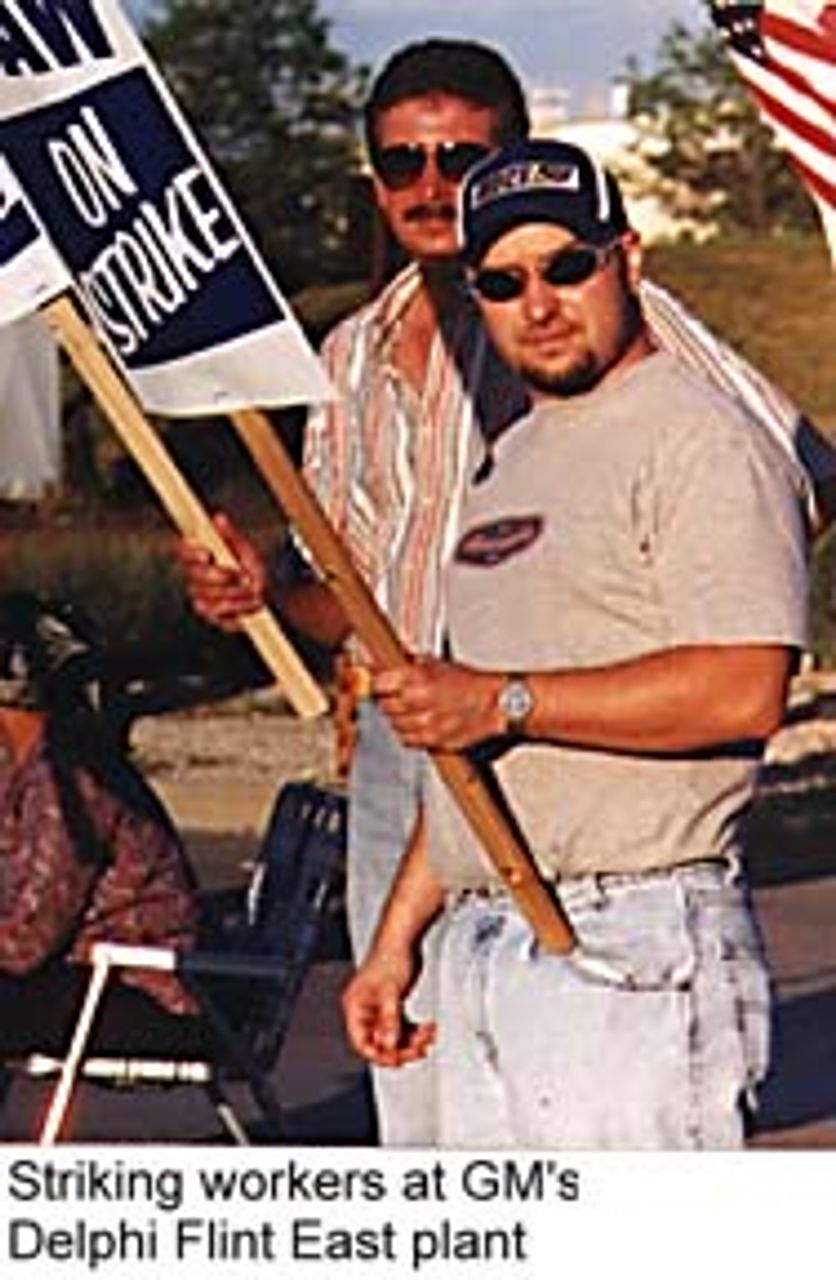 General Motors plans to reopen as many as ten assembly plants in August by purchasing parts from outside suppliers and bypassing the two factories in Flint, Michigan where United Auto Workers members have been on strike since early June. GM officials and industry analysts told USA Today that the auto maker wants to resume limited production of its most profitable light trucks, sports utility vehicles and cars.
General Motors plans to reopen as many as ten assembly plants in August by purchasing parts from outside suppliers and bypassing the two factories in Flint, Michigan where United Auto Workers members have been on strike since early June. GM officials and industry analysts told USA Today that the auto maker wants to resume limited production of its most profitable light trucks, sports utility vehicles and cars.
Before the company's annual two-week shutdown for model changeover began this week, the strikes by 9,200 workers at the Flint Metal Center and Delphi Flint East plants had led to the closing of 26 of GM's 29 North American assembly plants and the idling of 163,000 workers. GM has a sufficient supply of parts to keep three plants open: Ramos Arizpe, Mexico; Spring Hill, Tennessee; and Oshawa, Ontario.
By August, according to the newspaper account, GM would like to have enough parts to reopen up to seven other factories, including Silao, Mexico and Janesville, Wisconsin, which build sports utilities, and Pontiac, Michigan and Fort Wayne, Indiana, which will build new model pickup trucks.
Under the UAW-GM national agreement, assembly workers must use whatever parts GM buys, even if they replace those made by strikers. The auto maker would have little difficulty finding new, lower-cost suppliers. The majority of auto parts plants are nonunion, and in UAW-organized plants the union has accepted wage rates as low as a third of that paid to workers at the Big Three assembly plants.
On Wednesday GM's vice president of North American sales repeated the company's threats to eliminate unprofitable car models and shut plants. Speaking to reporters, Ronald Zarrella said, 'We may well take this situation as an opportunity to move up our plans to eliminate some overlap in our portfolio. We have more cars than we need and not enough trucks. One of the outcomes of this may be that we get out of the cars faster.' He also said if GM's market share falls due to the strike ,'the business will get smaller and there will be fewer jobs.'
This week, top negotiators, including Gerald Knechtel, GM's vice president for North American operations, and Richard Shoemaker, the UAW's bargainer with GM, met for the first time in three weeks. UAW Region 1C Director Cal Rapson in Flint told reporters, 'We're willing to work with them. We know we're going to make some changes, but the trade-off has got to be their commitment' to maintain jobs in Flint.
According to an article in the Detroit Free Press industry analysts believe that the UAW might agree to drop 'outmoded work rules' at the Flint Metal Center in exchange for the company fulfilling its earlier commitment to bring new equipment into the plant. GM would also use buyouts and other incentives to get workers to accept early retirement.
At the Delphi Flint East plant, analysts say a deal might involve the UAW allowing GM to outsource production of spark plugs and other basic parts to lower-wage factories. If the UAW offered a plan to increase productivity and profits, the company might bring in production of engine modules or other high-tech components.
However, GM officials have decided to take a long and costly strike, not only to save money in the Flint plants, but to realize substantial labor savings throughout the US. According to the Wall Street Journal , GM officials 'say, privately, that their goal is to win an agreement with UAW leaders that would stop the series of plant-level strikes that have escalated often narrow local disputes into company-wide shutdowns.' The newspaper also suggested that GM's efforts to have the Flint strikes declared illegal are aimed at introducing substantial changes in next year's UAW-GM national contract, prohibiting such strikes in the future.
See Also:
Global changes in auto industry underlie struggle over jobs
[16 June 1998]
The merger between Chrysler and Daimler-Benz:
what it means for workers
[8 May 1998]
